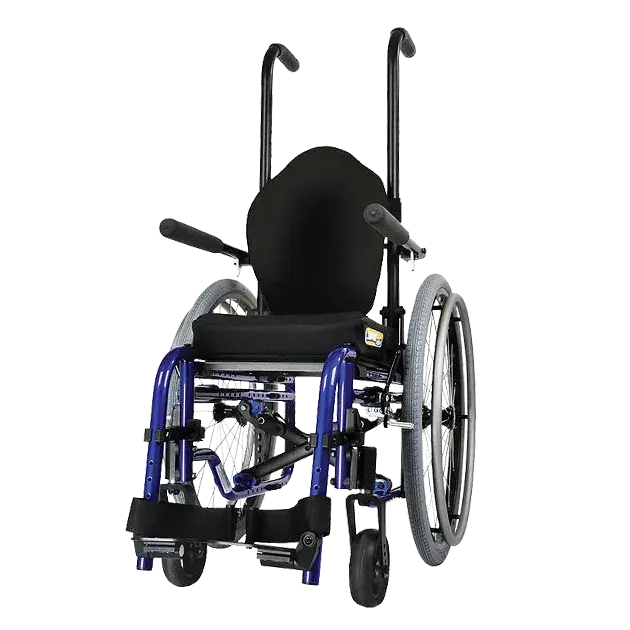
Discover the Importance of Early Intervention in Disability
Early Intervention in Disability
Early intervention in disability refers to a set of services and supports specifically designed for young children with disabilities or developmental delays, as well as for their families. These services are crucial during the early years of a child’s life, a critical period for brain development and the establishment of basic skills that will serve as the foundation for future learning and growth.
It includes a variety of services such as speech therapy, occupational therapy, physical therapy, and special education services. These services are designed to address the specific needs of each child and are available for children from birth to three years of age, although in some cases they may be extended up to five years.
The primary purpose of early intervention is to promote the child’s development and learning, helping them reach their full potential. Additionally, early intervention aims to provide families with the tools and support they need to care for and educate their children, thereby improving the quality of life for the entire family.
Early intervention in disability is an essential component for ensuring the healthy development and well-being of children with disabilities or developmental delays. Through early identification, personalized planning, and comprehensive support, positive outcomes can be achieved for both children and their families.
We invite you to read: Ergonomics and Health in Wheelchairs
The Importance and Objectives of Early Intervention in Disability
Early intervention in disability is crucial because it leverages brain plasticity during the early years to maximize the development of motor, cognitive, communication, and social skills in children with disabilities or delays. By providing personalized services and family support, it not only enhances the child’s developmental potential but also prevents future difficulties and reduces the need for more costly interventions in the long term, improving the quality of life for the whole family.
It is essential to maximize the developmental potential of children, prevent future problems, support families, and promote social inclusion. By achieving these objectives, general well-being and the long-term success of children with disabilities or developmental delays are promoted.
-
Optimal child development: early intervention is crucial to harness the brain’s plasticity during the first years of life, promoting the development of motor, cognitive, communication, and social skills, ensuring the child reaches their full potential.
-
Prevention of future problems: by addressing early developmental needs, it is possible to prevent or reduce the severity of future learning and behavioral difficulties, thereby decreasing the need for more costly long-term interventions.
-
Comprehensive family support: provides guidance, resources, and emotional support to families, helping them better understand and respond to their child’s needs, improving family well-being and reducing stress.
-
Inclusion and social participation: facilitates the child’s inclusion in educational and social environments, promoting active community participation from an early age and fostering positive attitudes toward diversity and disability.
-
Improvement in quality of life: through personalized services and ongoing support, early intervention seeks to enhance the quality of life for both the child and their family, enabling more harmonious and balanced development and fostering the child’s individual abilities.
-
School readiness and academic success: by improving basic skills from an early age, early intervention prepares children for a smoother transition into the educational system, increasing their chances of long-term academic success.
What is the Process of Early Intervention in Disability?
Early intervention in disability is carried out in a structured and personalized manner, adapting to the specific needs of each child and family. Here are the key principles of early intervention:
-
Principle of individualization: each intervention plan is tailored to the unique needs of each child.
-
Family-centered principle: families are essential partners in the intervention process.
-
Coordination principle: coordination among all services and professionals involved is promoted.
-
Inclusion principle: the child’s inclusion in natural and community settings is prioritized whenever possible.
This is how the process generally unfolds:
1. Initial Evaluation
-
Needs identification: an initial evaluation is conducted to identify any disability or developmental delay in the child.
-
Tests and assessments: professionals such as pediatricians, psychologists, therapists, and educators perform specific tests and assessments to determine the child’s areas of need.
2. Development of the Individualized Service Plan (ISP)
-
Multidisciplinary team: a multidisciplinary team is formed, including professionals such as occupational therapists, physical therapists, speech therapists, special educators, among others, depending on the child’s needs.
-
Personalized planning: based on the evaluation results, an Individualized Service Plan (ISP) is developed. This plan outlines specific objectives for the child and defines the services and supports needed to achieve those objectives.
3. Implementation of Specific Interventions
-
Specialized therapies: the ISP may include therapies such as physical therapy to improve mobility, occupational therapy for fine motor skills, speech therapy to enhance communication, and special education to support learning.
-
Activities and exercises: activities and exercises are developed to strengthen the specific skills the child needs to develop.
4. Family Support
-
Education and guidance: parents and caregivers receive education and guidance on how to support the child’s development at home.
-
Strategy training: parents are taught techniques and strategies they can use daily to encourage their child’s development.
5. Continuous Monitoring and Evaluation
-
Regular follow-ups: periodic evaluations are conducted to monitor the child’s progress and adjust the ISP as needed.
-
Plan review: the ISP is reviewed and updated regularly to ensure it remains relevant and effective for the child’s evolving needs.
6. Service Coordination
-
Collaboration among professionals: collaboration among all professionals involved in the child’s care is encouraged to ensure comprehensive and coordinated intervention.
-
Referrals and resources: referrals are provided to other community services or resources that may benefit the child and their family.
You might also be interested in: How to Choose the Right Wheelchair
Benefits of Early Intervention in Disability
Early intervention in disability offers significant benefits for both children with disabilities and their families. Here are the main benefits:
-
Improved overall development: helps children achieve important milestones in motor, cognitive, communication, and social skills from an early age, optimizing their overall development.
-
Reduction of long-term difficulties: intervening early can mitigate the severity of future learning and behavioral issues, reducing dependence on intensive services later on.
-
Family support and stress reduction: provides families with tools and resources to understand and support their child’s needs, fostering a more informed and less stressful family environment.
-
Effective preparation for education: prepares children to successfully integrate into regular educational settings, improving their long-term academic and social opportunities.
-
Positive community impact: promotes social inclusion by equipping children with skills that allow them to participate more fully in the community from an early age.
Early intervention in disability emerges as a fundamental pillar for the comprehensive development and well-being of both children and their families. By proactively intervening from the earliest years of life, a path is paved toward each child’s maximum potential, significantly promoting motor, cognitive, communication, and social skills.
Furthermore, early intervention not only aims to mitigate future educational and social challenges but also provides invaluable emotional and educational support to families, equipping them with the necessary tools to accompany and strengthen their child’s development.
By fostering inclusion and community participation early on, early intervention not only transforms individual lives but also enriches the broader social fabric, creating a more empathetic, inclusive, and equitable environment for all.
At Loh Medical, we are committed to supporting early intervention in disability. We believe in the importance of providing children and their families with the tools and resources necessary for optimal development from the start.
If you are looking for more information on how we can help or want to learn about our services and products designed to improve the quality of life for people with disabilities, contact us today! Together, we can make a significant difference in the lives of children and their families.






